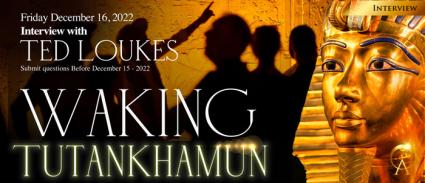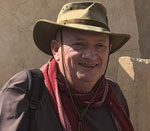
“Wonderful things”, the words spoken by Howard Carter on November 26, 1922, when Lord Carnavon asked him what he was seeing as he gazed upon the interior of Tutankhamun’s tomb for the first time. The words express the endless astonishment felt in the presence of this 3,300 year old treasure, which still captures the imagination today.
Who was the boy king, behind the dazzling golden death mask, that has come to epitomize Egyptian archaeology? His father, Akhenaten, was dubbed a heretic, his mother, possibly the most beautiful Nefertiti, but little is known about the boy who became king at the age of nine and died at the age of 19. His successors, Ay, who married his widowed queen, and step-sister, Ankhesenamun, followed by the general, Horemheb, almost completely erased his name from history, until the discovery of his tomb by Carter.
It took Carter over 10 years to catalogue the more than 5,000 artifacts found in the tomb. It was only three months later on February 17, 1923, that he unblocked the doorway to the innermost burial chamber and came face to face with the shrines surrounding Tutankhamun’s sarcophagus. The lid was only raised on February 24, 1924, revealing three more coffins. The last lid of the golden coffin was only raised in October 1925, revealing the now famous golden mask. But the implication was greater, for it covered the mummified face of the king!
Since his discovery Tutankhamun’s mummy has suffered several scientific analyses and scans, even linking his DNA to his family. Questions needed to be answered – was the King murdered as there was certainly motive for it?
The discovery of Tutankhamun’s tomb also sparked questions about the curse of the tomb, as well as the more recent controversy regarding the elimination of the names of the Egyptian archaeologists and workers who participated in the excavation.
Ancient Origins author and tour leader, Ted Loukes discusses the discovery of Tutankhamun’s tomb, as well as the history of the boy king in this Interview, as a prelude to the tour he will be leading to Egypt from 24 February to 10 March 2023.
 Ted Loukes is an independent researcher in the field of ancient civilisations. Born in the sixties, he has been on a voyage of discovery for over forty years, questioning man's origins by digging through ancient texts, inscriptions, myths and legends. He moved to South Africa in 1990 and set up home in Johannesburg, appropriately just a few kilometres from the Cradle of Humankind. His particular fascination with Ancient Egypt began in 1972 with a visit to the Treasures of Tutankhamun exhibition, held at the British Museum. His book Moses and Akhenaten: Brothers in Alms grew from a single page blog post to a two and a half year project that incorporated two field trips to Egypt itself. He is also the author of Forty Days in Egypt in the Time of Corona, the result of getting stranded as the world went into lockdown.
Ted Loukes is an independent researcher in the field of ancient civilisations. Born in the sixties, he has been on a voyage of discovery for over forty years, questioning man's origins by digging through ancient texts, inscriptions, myths and legends. He moved to South Africa in 1990 and set up home in Johannesburg, appropriately just a few kilometres from the Cradle of Humankind. His particular fascination with Ancient Egypt began in 1972 with a visit to the Treasures of Tutankhamun exhibition, held at the British Museum. His book Moses and Akhenaten: Brothers in Alms grew from a single page blog post to a two and a half year project that incorporated two field trips to Egypt itself. He is also the author of Forty Days in Egypt in the Time of Corona, the result of getting stranded as the world went into lockdown.
